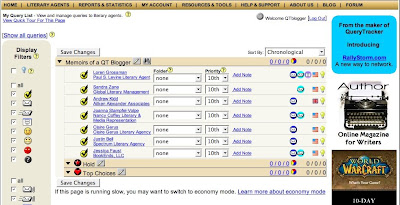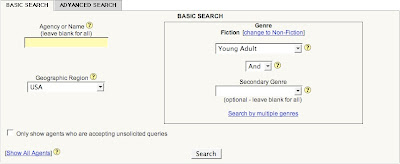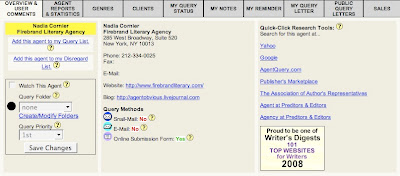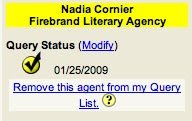A Note from Carolyn (Archetype): Many of you know that I'm the QT Blog Team's resident psychologist. Over the next two days, I'm going to teach you to use top secret therapy techniques to defeat the Inner Critic, that nasty little voice that tells us our writing is no good and we'll never get published.
The Inner Critic can be the writer’s worst enemy. Each time we sit down to work, it feeds on our insecurities, reminds us of past failures, and criticizes everything we put down on paper.
Until now you’ve probably thought, like most people do, that the Critic’s sinister whispers should be brushed away so you can try to get back to work. But brushing them away is the worst thing you can do, because you’re not dealing with them. And that means they’ll just come back.
Imagine a room with a floor that “settled” a little too much, and now everything is tilted in toward the middle. If you drop a basketball on the floor, it will roll to the middle. You can push it back toward the wall, but as soon as it loses momentum or hits the wall, it’s going to roll right back.
Now imagine yourself sitting right in that sunken spot in the middle, and imagine ten basketballs. If they settle against you, it’s hard for you to write (they roll over your keyboard or paper, they bang into your elbows), so you have to push them. Even if it’s a really big room and the basketballs are leisurely, repeatedly pushing ten of them away is going to keep you from getting much writing done. You’d be better off dealing with the problem directly: gathering up the basketballs and getting them out of your way.
The Critic does the same thing as those basketballs. It keeps you so busy trying to ward it off that you don’t get much done.
So let’s talk about how to pick it up and get it out of your way.
Our Secret Weapon: The ABC Model
The inner Critic doesn’t just torture writers; it’s also responsible for clinical depression and anxiety. (It’s no coincidence that mood disorders are more common in writers than the general population.) But psychotherapists know just how to deal with the inner Critic; in fact, even the most vicious Critic will fall before cognitive-behavioral techniques (CBT) when they’re wielded by someone truly determined to be the victor.
So, that's what we're going to use. Our secret weapon: the ABC model.
We use a chart for our homeworks in CBT. There are 5 columns, which we’ll label A, B, C, D, and E. For right now we’re just going to worry about B, though.
Exercise 1: A, B, & C
B stands for Beliefs
The first thing you’re going to do is spend some time writing down all the nasty things the Critic says to you in the B column. Even the things that seem small and silly.
Often people say, “It makes me feel bad and I want it to go away, and you want me to pay
more attention to it?”
Yes, that’s exactly what I want you to do. Remember, you need to take detailed notes on what the villainous Critic is doing if you’re going to beat him (or her). Be sure to include any phrase that uses the “hot” words the Critic likes best: should, shouldn’t, must, mustn’t, have to, can’t, etc.--words that make us feel stuck because they don’t leave room for alternatives.
Once you start to pay attention, you’ll notice that the Critic knows just which things will make you feel the worst, and it repeats those things the most. Part of what makes it so virulent is it knows your deepest insecurities and fears, and those are what it uses against you. It’s successful because you’re afraid those things are really true.
Worse, it’s stealthy enough that most of the time you’re not consciously hearing what it’s saying to you.
You’ve been listening to it for so long you hardly even notice its voice. Instead, you assume that your reactions or fears are based in objective reality.
Especially because it uses insults that are hard to defend against. For example, it’s hard to argue with “You’re not creative enough” because it’s hard to define what creative enough really is.
Don’t be afraid to pull out your list and add things as they occur to you. And don’t be surprised if your list is several pages long. That means two things. First, you’re doing a good job with this, and second…well, you’re a writer. Of course you’re going to write quite a bit!
C stands for Consequences
As you work, write down any emotions you’re feeling in the C column; that is, the emotional consequences to the beliefs in column B. Some statements might make you angry, some might make you sad, some might make you anxious. Just write it all down, and don’t worry if you’re repeating the same emotions beside different kinds of Critical thoughts.
| B
Beliefs/thoughts | C | | |
| What’s the Critic saying to you?
What is it trying to make you think or believe? | Your feelings as the Critic talks
Consequences | | |
| Example: | Example: | | |
| I don’t know why I even bother sending out queries, I always get rejection letters. Obviously I don’t have any talent and I just look stupid to everyone who sees my work. I should just give up and admit I’m no good. | Hopeless, depressed, hurt, angry, worthless | | |
A stands for Activating Event
Now try to pinpoint when the Inner Critic bothers you most. Did you get a rejection slip? Did you see a writer on a talk show? Did you realize your writing time is coming up? Write those things in the A column.
A
Activating event | B
Beliefs/thoughts | C
Consequences | | |
What happened?
| What’s the Critic saying to you?
What is it trying to make you think or believe? | Your feelings as the Critic talks | | |
| Example: | Example: | Example: | | |
| Received a rejection slip | I don’t know why I even bother sending out queries, I always get rejection letters. Obviously I don’t have any talent and I just look stupid to everyone who sees my work. I should just give up and admit I’m no good. | Hopeless, depressed, hurt, angry, worthless | | |
So you’re going to be cataloging three things:
A stands for Activating Event (what happened?)
B stands for Beliefs (what you thought, what the Critic said to you)
C stands for Consequences (how you feel)
Come back tomorrow for the next step in defeating your inner critic!





























